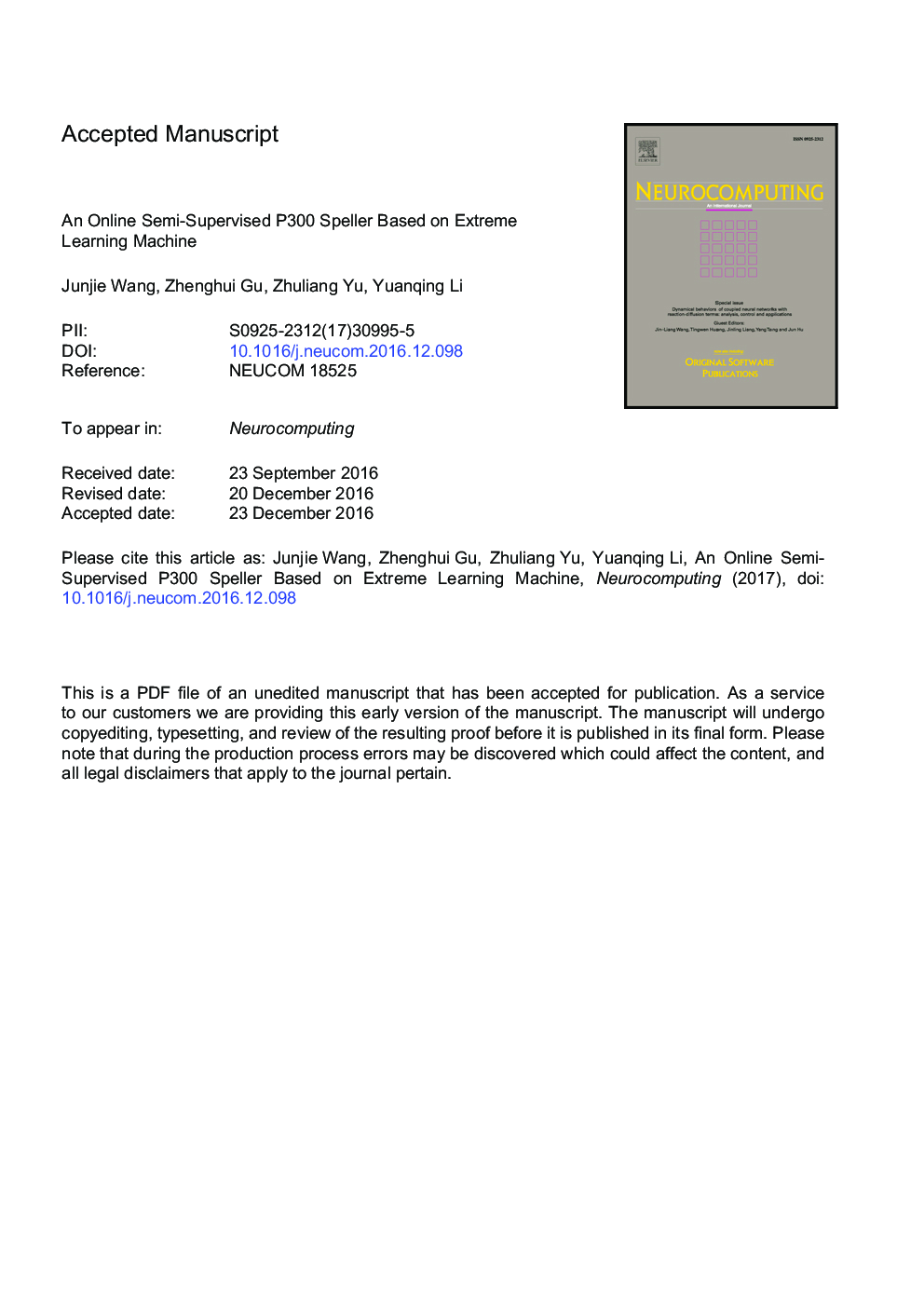| Article ID | Journal | Published Year | Pages | File Type |
|---|---|---|---|---|
| 4946875 | Neurocomputing | 2017 | 16 Pages |
Abstract
Semi-supervised learning has been applied in brain-computer interfaces (BCIs) to reduce calibration time for user. For example, a sequential updated self-training least squares support vector machine (SUST-LSSVM) was devised for online semi-supervised P300 speller. Despite its good performance, the computational complexity becomes too high after several updates, which hinders its practical online application. In this paper, we present a self-training regularized weighted online sequential extreme learning machine (ST-RWOS-ELM) for P300 speller. It achieves much lower complexity compared to SUST-LSSVM without affecting the spelling accuracy performance. The experimental results validate its effectiveness in the P300 system.
Related Topics
Physical Sciences and Engineering
Computer Science
Artificial Intelligence
Authors
Junjie Wang, Zhenghui Gu, Zhuliang Yu, Yuanqing Li,
